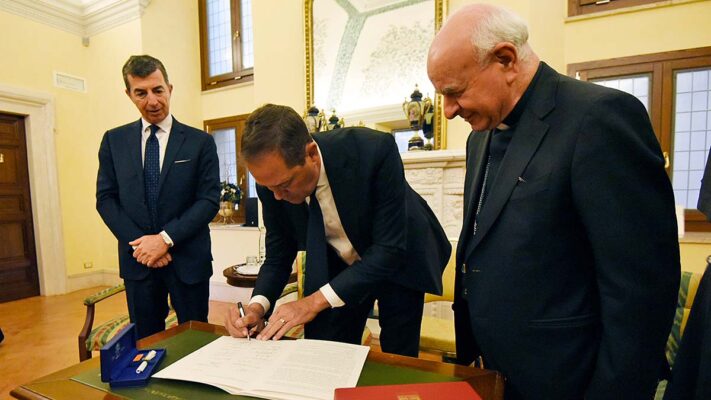
In the ever-evolving landscape of technology, ethical considerations have become paramount, especially in the realm of artificial intelligence (AI). Cisco, a stalwart in the tech industry, has recently pledged its support to the Rome Call for AI Ethics, aligning itself with a coalition of global leaders advocating for the responsible development of AI technologies.
Initiated by the Vatican in February 2020, the Rome Call for AI Ethics serves as a foundational document, urging for the creation of AI systems that are transparent, accountable, and socially beneficial. What started with the Vatican Pontifical Academy for Life, Microsoft, IBM, and other notable organizations has now expanded to include Cisco, marking a significant milestone in the journey towards ethical AI.
Father Paolo Benanti, the scientific director of the RenAIssance Foundation established by Pope Francis, underscores the imperative of ethical AI development. He aptly points out that AI is not merely a technological advancement but a societal transformation, echoing concerns about disparities, inequalities, and environmental challenges brought about by previous industrial revolutions.
Pope Francis, known for his advocacy on pressing global issues, has championed the integration of ethical considerations into AI development. His leadership has catalyzed a broader dialogue encompassing diverse religious and cultural perspectives, as evidenced by the participation of Jewish and Muslim leaders in endorsing the Rome Call.
The ethical principles outlined in the Call resonate deeply with Cisco’s approach to AI development. Transparency, fairness, accountability, privacy, security, and reliability serve as guiding beacons for Cisco, ensuring that their AI systems adhere to the highest standards of integrity and trustworthiness.
However, the journey towards ethical AI is not without its challenges. Instances of bias and discrimination in AI algorithms underscore the importance of vigilance and continual improvement. Yet, these challenges also present opportunities for innovation and collaboration across sectors.
Cisco’s commitment to ethical AI extends beyond corporate responsibility; it embodies a vision of technology serving humanity’s greater good. As consumer concerns about data privacy and AI usage continue to grow, Cisco recognizes the need to prioritize ethical considerations over mere profit motives.
Indeed, ethical AI is not just a regulatory obligation; it is an investment in a more equitable and sustainable future. Much like Central Park in New York, which enriches its surrounding community despite foregoing commercial development, ethical AI has the potential to enhance societal well-being in ways that transcend immediate gains.
Ultimately, the success of the Rome Call for AI Ethics lies in its integration into the fabric of AI development, where ethical principles become ingrained rather than imposed. Cisco’s participation signifies a crucial step towards this collective vision, where the pursuit of innovation is harmonized with the values of transparency, inclusivity, and accountability.
In the words of Father Paolo Benanti, the true measure of success for the Rome Call for AI Ethics lies in its eventual obsolescence. When ethical considerations become second nature in AI development, the Call will fade into obscurity, testament to its enduring impact on shaping a more humane and responsible technological future.